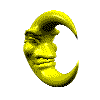


 |
Welcome, Guest. Please login or register. - Thinking of joining the forum?? February 06, 2026 - @417.22 (what is this?) |
||
Activity rating:  Posts & Arts: 76/1k.beats Posts & Arts: 76/1k.beats |
Unread Topics | Unread Replies | My Stuff | Random Topic | Recent Posts |


|
|
News:   Hello Melonland! Hello Melonland!   |
Guild Events: There are no events! | ||
| |||||||||||
| Melonking.Net © Always and ever was! | SMF 2.0.19 | SMF © 2021 | Privacy Notice | ~ Send Feedback ~ | Forum Guide | Rules | RSS | WAP | Mobile |










 Author
Author












